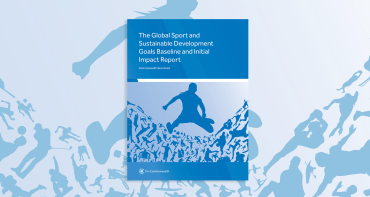Findings of a new snapshot research on the impact of the pandemic on education services in South Africa offer important lessons for governments and practitioners across the Commonwealth, says one of the study’s authors.
Findings of a new snapshot research on the impact of the pandemic on education services in South Africa offer important lessons for governments and practitioners across the Commonwealth, says one of the study’s authors.
Effects of the pandemic
Author Dr Amina Osman, who is a Commonwealth Secretariat’s education adviser, said the study demonstrates the deep and scarring effects of the pandemic on children’s learning and lives.
Delivered in partnership with a South African-based education development body, JET Education Services (JET), the study drew on the experience and expertise of young volunteers, university students, newly qualified teachers, researchers, government officials and international experts.
Disparities in digital literacy
Findings and recommendations from the study have been published in a compendium that is available to the Commonwealth’s 54 countries. They highlight challenges such as gaps in early childhood development services, and disparities in digital literacy and access to internet and internet-enabled devices, which are key considerations in lockdown learning.
The study recommends equipping students to spot fake news online and enhancing learners self-sovereign identity (a digital identity which they own and control) to protect their personal data.
Focus on rebuilding
With a focus on rebuilding, the findings emphasise the role of innovative financing approaches and public-private partnerships in helping education services nimbly respond to future crises.
Dr Osman said: “This study, though limited to a specific geographical location, is a concerning snapshot of the far-reaching, negative impact of the pandemic, not just on learning outcomes, but also on social concerns such as poverty and child deprivation.
“Findings demonstrate that though children have not been framed as the face of the pandemic, they are in fact among its biggest victims. Many vulnerable children for whom educational institutions represented their only hot meals and reprieve from abuse, were unable to attend school for extended periods of time.”
She added that communities and governments responded with commendable strategies such as the school feeding programmes, which offered a “lifeline” to poor and marginalised children.
Dr Osman continued: “But this was and is a fast-moving, evolving situation, and despite the best efforts, many vulnerable children are missing out.
“We hope this study helps governments, practitioners and education support organisations pinpoint priority areas and inspires innovative strategies that could help to rebuild and strengthen the resilience of educations systems.”
Research response
JET’s CEO, James Keevy, said his organisation “is incredibly proud” to have taken part in the study.
He added: “Organised into 12 workstreams, this early research response to the impact of the pandemic on the education system in South Africa was designed to provide decision-makers with real time support.
“Today, nearly exactly one year later, we have taken the work of the 12 thematic workstreams and synthesised these into this compendium with the support of the Commonwealth Secretariat.
“While the authors worked incredibly hard to compile this substantive account of the early months of the pandemic’s impact on education in South Africa, this compendium is a tribute to each volunteer that worked tirelessly during a time many others were struggling to cope.”
Future research
Mr Keevy hoped the compendium would serve as an important reference point for future educational research in South Africa and across the Commonwealth.
The Secretariat will expand the study across the Commonwealth to better understand how regional and cultural contexts are influencing education services during the pandemic.



